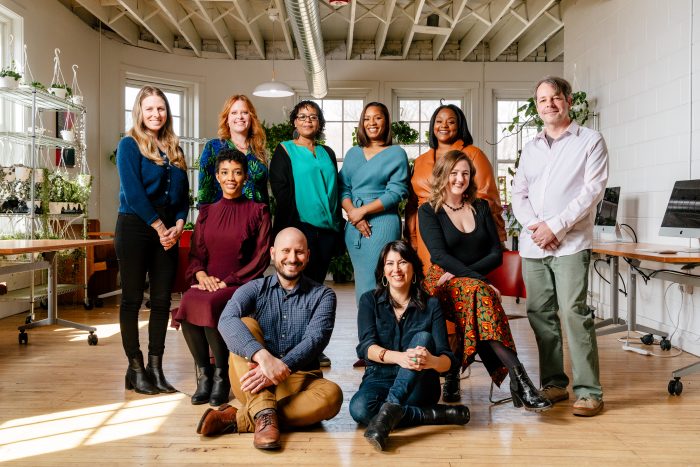
Two women-led journalism organizations in Detroit — Outlier Media and Detour Detroit — are combining under the Outlier umbrella, the companies announced Tuesday.
Outlier Media, founded in 2016 by Sarah Alvarez, treats information as a key tenet of journalism and texts with residents about local issues like evictions and health, “to hold landlords, municipal government, and elected officials accountable for longstanding problems.” Outlier also teamed up with City Bureau to launch a Documenters program for Detroit, training and paying people to make information from public meetings actually public.“I was not satisfied with covering low-income communities for a higher-income audience. I wanted to cover issues for and with low-income news consumers,” Alvarez told Nieman Lab in 2018.
Outlier is currently fiscally sponsored by nonprofit news company MuckRock, but in 2021 it received nearly $1 million from the American Journalism Project and, two months ago, started the process of becoming an independent nonprofit.Detour Detroit was founded by Ashley Woods Branch — a 2018 visiting Nieman Fellow — and Kate Abbey-Lambertz as a Detroit-focused newsletter startup aimed at millennials. Detour received initial funding from The Information’s accelerator program. The newsletter has grown to 20,000 subscribers.
Alvarez remains editor-in-chief of Outlier Media; Candice Fortman remains Outlier’s executive director. Woods Branch is becoming outlier’s senior director of audience and growth, and Abbey-Lambertz will serve as product strategy and engagement manager. Outlier will soon launch a news website for its accountability journalism, and the team will think about how it can expand from 1:1 text conversations to make its work more generally accessible.
Detour’s membership program had about 600 people paying $5 a month, but the membership idea is also being rethought because Outlier is a different type of organization.
“We’re going past the idea of thinking ‘How can we get someone to give $5 a month?’ and thinking, ‘How do we inspire people to action?’” Woods Branch told me. That could mean attending volunteer events or showing up to take notes with Documenters.“Membership as a way to reward readers is good and fine, but our community needs more,” Woods Branch added. “We want to figure out how we can mobilize people to think of news as a public utility….There are going to be ways to join this community that don’t involve giving money by credit card.”